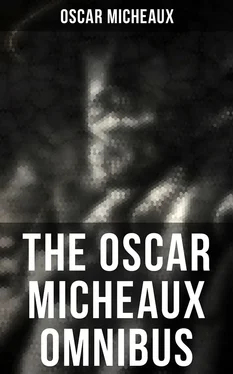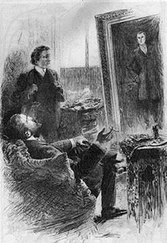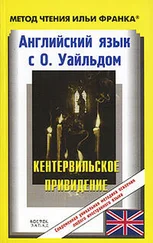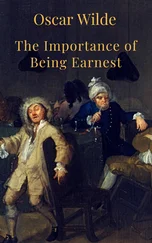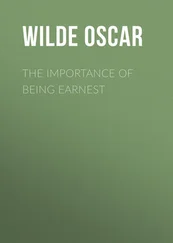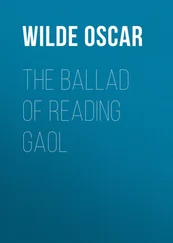They made a lot of noise for a while, which soon died out, however, as the author of the book was far too broad minded and intelligent in every way, to be a party to such a theory, much less, to lead a lot of reckless people, who never had and never would do anything for the uplifting of their race.
The Reverend and I could not in any way agree. He was so bitter against industrial education and the educator's name, that he lost all composure in trying to dodge the issue in our argument, and found himself up against a brick wall in attempting to belittle Mr. Washington's work. Most of the trouble with the elder was, that he was not an intelligent man, never read anything but negro papers, and was interested only in negro questions. He was born in Arkansas, but maintained false ideas about himself. He never admitted to having been born a slave, but he was nearly sixty years of age, and sixty years ago a negro born in Arkansas would have been born in slavery, unless his parents had purchased themselves. If this had been the case, as vain as he was, I felt sure he would have had much to say about it. He must have been born a slave, but of course had been young when freed. He had lived in Springfield, Missouri, after leaving Arkansas, and later moving to Iowa, where, at the age of twenty-seven years, he was ordained a minister and started to preach, which he had continued for thirty years or more. He never had any theological training. This was told me by my wife, and she added despairingly:
"Poor papa! He is just ignorant and hard-headed, and all his life has been associated with hard-headed negro preachers. He reads nothing but radical negro papers and wants everybody to regard him as being a brilliant man, and you might as well try to reason with two trees, or a brick wall, as to try to reason with him or Ethel. I'm so sorry papa is so ignorant. Mama has always tried to get him to study, but he would never do it. That's all."
We went up to the claims, taking the elder along. My sister had married and her husband was making hay on the claims.
I might have been more patient with the Reverend, if he had not been so full of pretense, when being plain and truthful would have been so much better and easier. I had quit talking to him about anything serious or anything that interested me, but would sit and listen to him talk of the big preachers, and the bishops, and the great negroes who had died years before. He seemed fond of talking of what they had done in the past and what more could be done in the future, if the white people were not so strongly banded against them. After this, his conversation would turn to pure gossip, such as women might indulge in. He talked about the women belonging to the churches of his district, whether they were living right or wrong, and could tell very funny stories about them.
In Dakota, like most parts of the west, people who have any money at all, carry no cash in the pocket, but bank their money and use checks. The people of the east and south, that is, the common people, seldom have a checking account, and, with the masses of the negroes, no account at all. During the summer Orlean had sent her father my checks with which to make purchases. The Reverend told me he checked altogether, but my wife had told me her father's ambition had always been to have a checking account, but had not been able to do so. I had to laugh over this, for it was no distinction whatever. We discussed the banking business and the elder tried to tell me that if a national bank went broke, the government paid all the depositors, while if it was a state bank, the depositors lost. As this was so far from correct, I explained the laws that governed national banks and state banks alike, as regards the depositors, in the event of insolvency. I did not mean to bring out such a storm but he flew into an accusation, exclaiming excitedly:
"That's just the way you are! You must have everything your way! I never saw such a contrary man! You won't believe anything!"
"But, Reverend," I remonstrated. "I have no 'way' in this. What I have quoted you is simply the law, the law governing national and state bank deposits, that you can read up on yourself, just the same as I have done. If I am wrong, I very humbly beg your pardon."
The poor old man was so chagrined he seemed hardly to know what to do, though this was but one of many awkward situations due to his ignorance of the most simple business matters. Another time he was trying to listen intelligently to a conversation relating to the development of the northwest, when I had occasion to speak of Jim Hill. Seeing he did not look enlightened, I repeated, this time referring to him as James J. Hill, of the Great Northern, and inquired if he had not heard of the pioneer builder.
"No, I never heard of him," he answered.
"Never heard of James J. Hill?" I exclaimed, in surprise.
"Why should I have heard of him," he said, answering my exclamation calmly.
"O, no reason at all," I concluded, and remained silent, but my face must have expressed my disgust at his ignorance, and he a public man for thirty years.
After this conversation I forced myself to remain quiet and listen to common gossip. Instead of being pleased to see us happy and Orlean contented, he would, whenever alone with her, discourage her in every way he could, sighing for sympathy, praising Claves and telling her how much he was doing for Ethel, and how much she, Orlean, was sacrificing for me.
The contest trial occurred while he was with us, and cost, to start with, an attorney's fee of fifty dollars, in addition to witnesses' expenses. I had bought a house in Megory and we moved it onto Orlean's claim. The Reverend helped with the moving, but he was so discouraging to have around. He dug up all the skeletons I left buried in M—pls and bared them to view, in deceitful ways.
We had decided not to visit Chicago that winter. The crop was fair, but prices were low on oats and corn, and my crops consisted mostly of those cereals. I tried to explain this to the Reverend when he talked of what we would have, Christmas, in Chicago.
"Now, don't let that worry you, my boy," he would say breezily. "I'll attend to that! I'll attend to that!"
"Attend to what?" I asked.
"Why, I'll send both of you a ticket."
"O, really, Reverend, I thank you ever so much, but I could not think of accepting it, and you must not urge it. We are not coming to Chicago, and I wish you would not talk of it so much with Orlean," I would almost plead with him. "She is a good girl and we are happy together. She wants to help me, but she's only a weak woman, and being so far away from colored people, she will naturally feel lonesome and want to visit home."
He paid no more attention to me than if I had never spoken. In fact, he talked more about Chicago than ever, saying a dozen times a day:
"Yes, children, I'll send you the money."
I finally became angry and told him I would not, under any circumstances whatever, accept such charity, and that what my money was invested in, represented a value of more than thirty thousand dollars, and how could I be expected to condescend to accept charity from him.
He had told me once that he never had as much as two hundred dollars at one time in his life. I did not want a row, but as far as I was concerned, I did not want anything from him, for I felt that he would throw it up to me the rest of his life. I was convinced that he was a vain creature, out for a show, and I fairly despised him for it.
At last he went home and Orlean and I got down to business, moving more of our goods onto the claim, and spending about one-third of the time there. We intended moving everything as soon as the corn was gathered. As Christmas drew near, her folks wrote they were looking for her to come home, the Reverend having told them that she was coming, and that he was going to send her the money for her to come. Her mother wrote about it in letter, saying she didn't think it was right. Just before Christmas, she wrote that maybe if she wrote Cousin Sam he would send her the money. Cousin Sam was a porter in a down town saloon. I felt so mortified that I swore I would never again have anything to do with her family. They never regarded my feelings nor our relations in the least, but wrote a letter every few days about who was coming to the house to see Orlean Christmas, of who was going to have her at their homes for dinner when she came home, until the poor girl, with a child on the way, was as helpless as a baby, trying to be honest with all concerned. It had never been her lot to take the defensive.
Читать дальше
